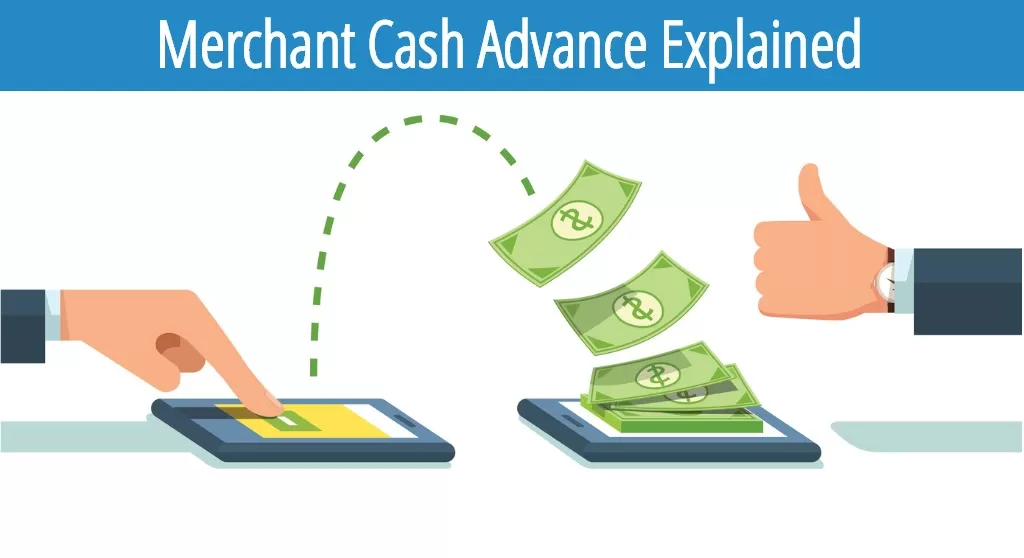Are you looking for quick and flexible financing options to grow your business? A Merchant Cash Advance might be the answer you’ve been seeking. In this ultimate guide, we’ll dive deep into what a Merchant Cash Advance is, how it works, its pros and cons, eligibility requirements, alternative financing options, and more. So please grab a cup of coffee, and let’s explore the world of Merchant Cash Advances together!
What is a Merchant Cash Advance?
A Merchant Cash Advance is a type of funding where a business gets a single amount installment in return for a level of its everyday Mastercard deals. Unlike traditional loans, MCAs are not based on credit scores or lengthy approval processes. Instead, they rely on the business’s future revenue to determine eligibility.
This type of funding can be attractive to businesses that experience fluctuating sales volumes or need help qualifying for conventional loans. The repayment structure involves automatic deductions from daily credit card transactions until the advance and fees are fully repaid.
While MCAs offer quick access to capital and repayment flexibility, they often cost more than traditional loan options. It’s essential for businesses considering an MCA to carefully assess their financial situation and weigh the pros and cons before proceeding with this type of financing.
How Does it Work?
A Merchant Cash Advance (MCA) is a flexible financing option for businesses needing quick access to capital. But how does it work exactly? Let’s break it down.
When a business applies for an MCA, the provider assesses its daily credit card sales and overall financial health. Based on this evaluation, the provider offers a lump sum upfront, which the business repays with a percentage of its daily credit card sales.
The repayment process is designed to be seamless – as the business makes sales, a portion automatically goes towards repaying the advance. This means that during slower periods, payments adjust accordingly to ease cash flow pressures.
The MCA model allows businesses to access funds swiftly without being tied down by fixed monthly payments or long waiting times typically associated with traditional loans.
Advantages and Disadvantages of an MCA
Merchant Cash Advance s (MCAs) offer several advantages for business owners needing quick financing. One significant benefit is the simple application process compared to traditional loans. With minimal paperwork and requirements, businesses can access funds swiftly to address urgent financial needs.
Another advantage of MCAs is the flexibility they provide in repayment. Instead of fixed monthly payments, repayments are based on a percentage of daily credit card sales. This means that during slower periods, businesses pay less, easing cash flow strain.
However, there are also some drawbacks to opting for an MCA. The cost of capital associated with MCAs tends to be higher than traditional loans due to factor rates and fees. It’s essential for business owners to carefully evaluate whether the benefits outweigh the additional expenses before committing to this form of financing.
Despite these disadvantages, Merchant CashAdvance s remain a popular choice for many small businesses seeking fast access to funding without extensive paperwork or collateral requirements.
Eligibility Requirements
To qualify for a Merchant CashAdvance (MCA), businesses must meet specific eligibility requirements. These requirements can vary depending on the lender, but standard criteria include having a minimum monthly credit card sales volume and being in business for a certain period.
Lenders generally look for businesses operating for at least six months with steady monthly revenue. Additionally, many MCAs require a minimum credit score and may have restrictions based on industry type or location.
Unlike traditional loans, MCAs are more lenient regarding credit history and collateral. This is because repayment is tied directly to daily credit card sales, making it less risky for the lender.
Meeting the eligibility requirements for an MCA can be easier than qualifying for a traditional loan, providing fast access to much-needed capital for small businesses.
Alternative Financing Options
Are you looking for alternative financing options to a traditional Merchant CashAdvance? Consider exploring Small Business Administration (SBA) loans. These government-backed loans typically offer lower interest rates and longer repayment terms, making them an attractive choice for many small business owners.
Another option to consider is a business line of credit. This flexible financing solution allows you to borrow funds up to a predetermined limit as needed, giving you access to capital when it’s necessary without committing to a lump sum payment.
Invoice factoring is another alternative worth considering. With this option, you can sell your outstanding invoices at a discount to receive immediate cash flow, helping bridge any gaps in working capital.
Crowdfunding has also become increasingly popular as an alternative source of funding. By leveraging online platforms, you can raise funds from a large pool of individuals who believe in your business idea or product.
Conclusion
When considering a Merchant CashAdvance as a financing option for your business, carefully weigh the advantages and disadvantages. While an MCA can provide quick access to funds without requiring collateral or perfect credit scores, the high costs associated with this type of financing should not be overlooked.
Before committing to an MCA, explore alternative financing options such as traditional bank loans, lines of credit, or SBA loans. These alternatives may offer more favorable terms and lower overall costs in the long run.
You understand how Merchant CashAdvance s work, and evaluating your eligibility requirements will help you decide whether this form of funding is suitable for your business needs. Consider all aspects of an MCA before moving forward with this financial solution.

